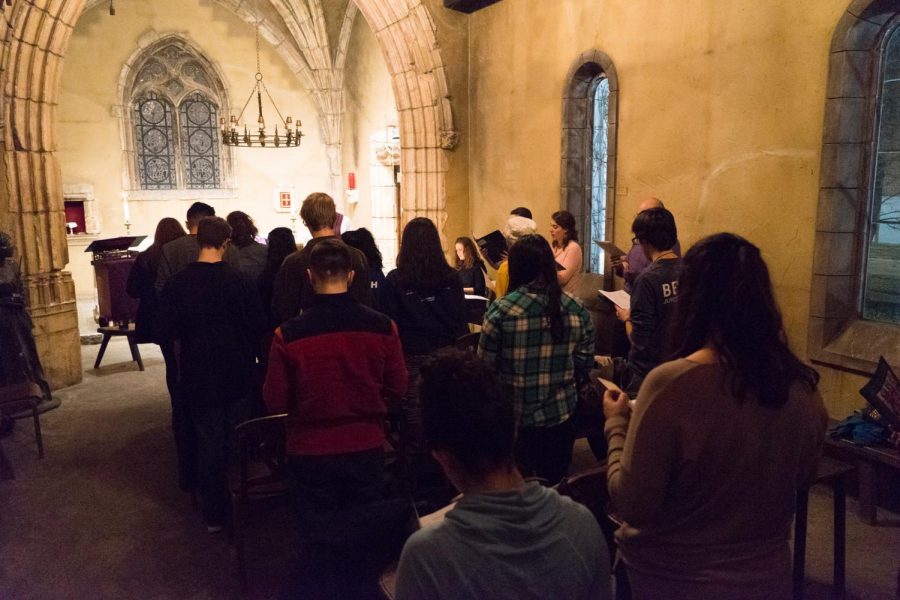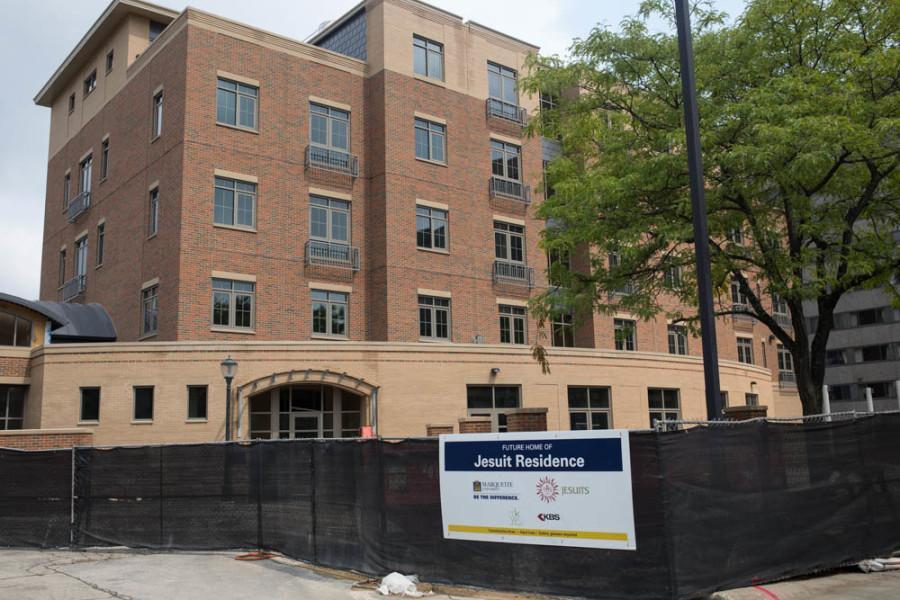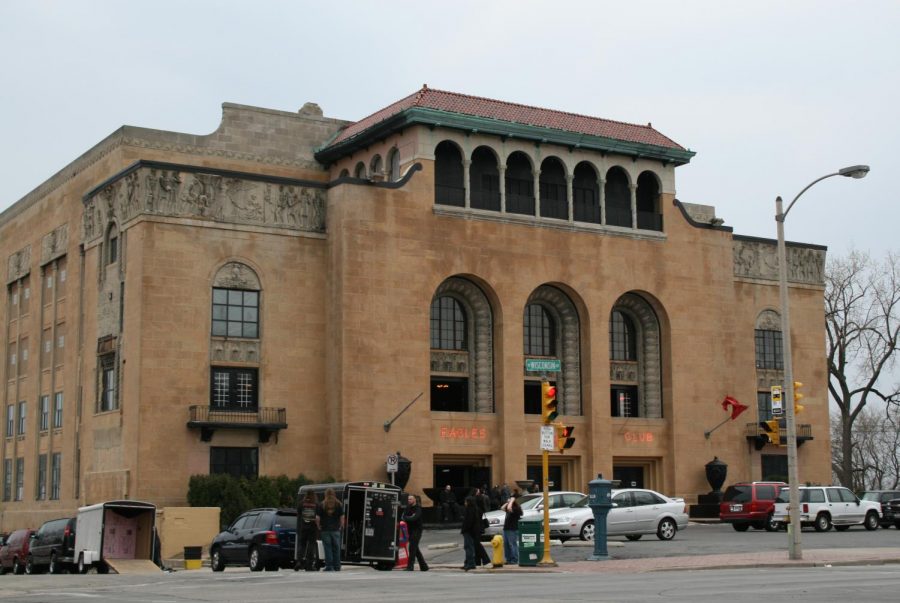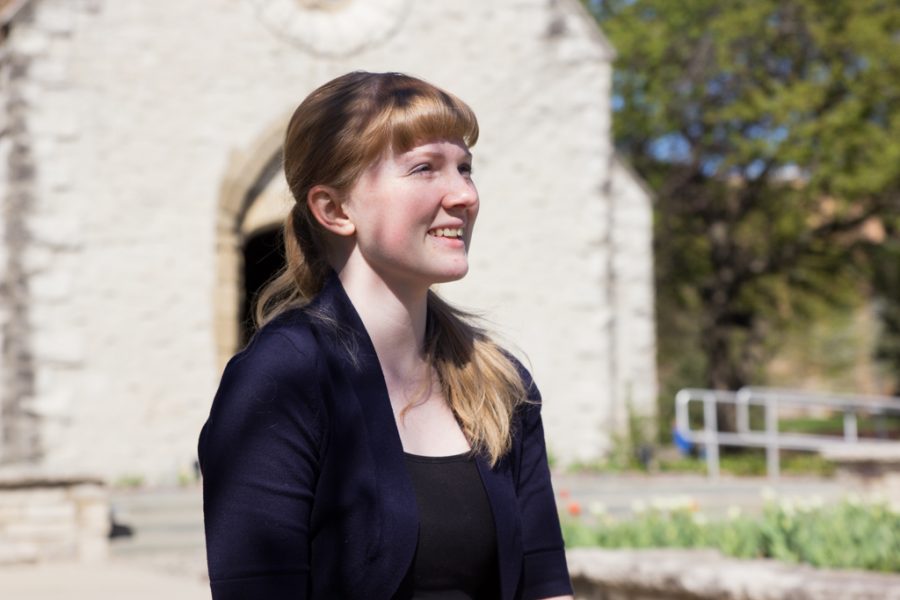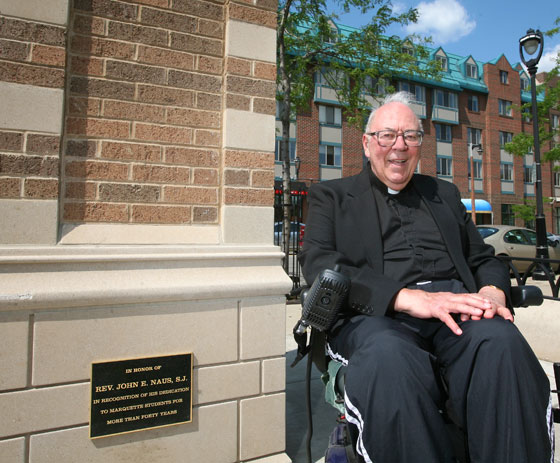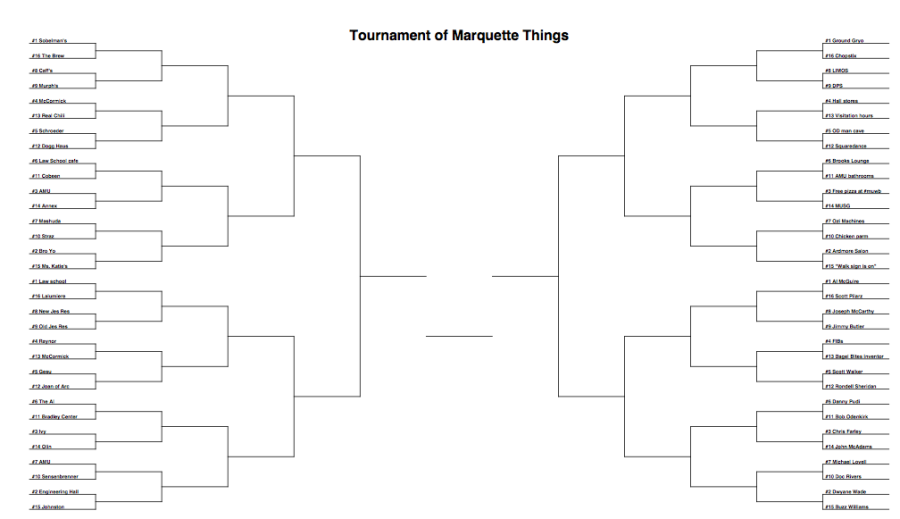Jessica Szuminski has played the flute since middle school, but when she came to Marquette four years ago, the senior in the College of Arts & Sciences was worried she wouldn’t be able to find a musical outlet.
But during her freshman year, she learned about a Marquette tradition: 10 p.m. Tuesday mass at Joan of Arc Chapel. For her, it quickly became a musical and spiritual experience that defined her college career.
“I enjoy mass more when I’m part of it” Szuminski, now the coordinator for Tuesday night mass, said. “The Tuesday community resonated with me. I appreciate the worship time with friends … It satisfies my musical needs.”
Roughly 30 students, ranging from first-years to graduate students, volunteer their time and talents for weeknight masses occurring at Joan of Arc Chapel, Monday through Thursday at 10 p.m.
“Tuesday night mass used to be the only night mass [at Joan of Arc],” Tom Koester, director of music in the campus ministry, said. Rachelle Kramer was the director of music for the ministry prior to Koester, who became the director in 2010. He claimed Kramer was “instrumental” to providing masses with student musicians and cantors, allowing services to expand beyond the initial Tuesday night masses.
Koester recruits, trains and schedules student musicians and cantors. Sign-ups occur at the beginning of the school year.
In recent years, equal emphasis has spread to other weeknight masses, where musical accompaniment has gained prominence, according to Koester. There are nine cantors and 20 instrumentalists who play instruments including piano, guitar, flute, violin and percussion. They split duties to provide musical leadership for the masses.
“(There’s) a vitality to what they do,” Koester said of the student musicians and cantors. “Their enthusiasm is a delight to see (and) their dedication is gratifying.”
Austin Dodge learned about the night masses his third or fourth day on campus. Dodge, who is in his fourth year of master’s studies in periodontal dentistry, has been a cantor for the night masses for seven years.
“I make time for things that are important,” he said. “Mass is important to me.”
Dodge appreciates using his musical talent to help people pray and feels singing is a great way to give back to his spiritual community. He sings Tuesday and Thursday night at Joan of Arc and Sunday nights in the Chapel of the Holy Family.
Another member of the Joan of Arc musicians is Sophia Driscoll, who developed her musical interests in sixth grade, beginning her musical journey with the trombone. The freshman in the College of Arts & Sciences, who also sings in the liturgical choir, began singing as a cantor for Thursday night services this academic year.
“I was nervous when I started,” she said. “I messed up a psalm.”
Driscoll acknowledges feeling closer to God when playing music; she finds singing as a form of prayer. She plans to be involved in night masses as she continues her studies.
For many of these musicians, it’s about more than just the songs themselves.
“Music is a function of forming people in the faith,” Bernardo Avila Borunda, assistant director for multicultural ministry, said. The university began having bilingual masses almost four years ago and soon after, students asked to have a service in Spanish.
“People like [having a service in] the language they grew up with,” he said. “It brings them closer to God.”
A Spanish service is held the first Thursday of each month. Bilingual services occur a few times each semester. During the Christmas season, a Filipino service is also held.
“(These services) connect us to our mission,” Avila Borunda said, “there is an emphasis of diversity on campus and in liturgy.”
Tom Koester described liturgy as “the work of the people,” or the congregation’s participation in prayer and music.
“I’m amazed that students, at the end of the day, have held on to the evening masses,” Koester said. He finds they value having an opportunity to pray at the end of the day.
Matthew Braccio, a senior in the College of Engineering and guitarist for Tuesday night masses, is one of those many students.
“No matter how stressed I am, or what’s on my mind, I can leave that all at the door,” he said. “I sort of get into a rhythm once I’m at mass. The music, the singing, and the flow of it all puts me at ease.”

